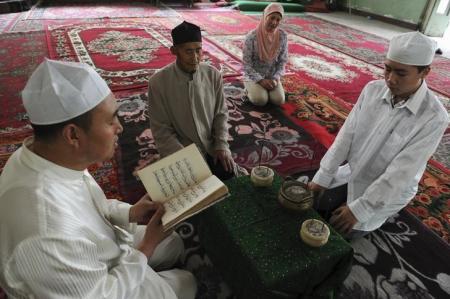China responsible for ‘serious human rights violations’ against Uyghurs: UN report

China is to blame for “serious human rights violations” against the Uyghur population and other Muslim minorities, according to a new United Nations report.
The Office of the U.N. High Commissioner for Human Rights released a report on Wednesday documenting human rights issues in China’s Xinjiang Uyghur Autonomous Region.
“Serious human rights violations have been committed in XUAR in the context of the government’s application of counter-terrorism and counter-‘extremism’ strategies,” stated the 46-page report.
“These patterns of restrictions are characterized by a discriminatory component, as the underlying acts often directly or indirectly affect Uyghur and other predominantly Muslim communities.”
The report noted that China’s anti-terrorism policies were being used to persecute Muslims, in part because the system “contains vague, broad and open-ended concepts that leave wide discretion to officials to interpret and apply broad investigative, preventive and coercive powers, in a context of limited safeguards and scant independent oversight.”
The report noted that the “treatment of persons held in” what were known as “Vocational Education and Training Centres” was a major concern, given credible allegations of abuse.
“Allegations of patterns of torture or ill-treatment, including forced medical treatment and adverse conditions of detention, are credible, as are allegations of individual incidents of sexual and gender-based violence,” continued the report.
“While the available information at this stage does not allow OHCHR to draw firm conclusions regarding the exact extent of such abuses, it is clear that the highly securitized and discriminatory nature of the VETC facilities, coupled with limited access to effective remedies or oversight by the authorities, provide fertile ground for such violations to take place on a broad scale.”
Regarding the issue of “reproductive rights,” the U.N. report found evidence of “coercive and discriminatory enforcement of family planning and birth control policies.”
This included multiple women telling U.N. researchers that they were forcibly sterilized or forced to undergo abortions to limit their birth rate, in part because the communist government linked high birth rates with “extremism.”
“In summary, there are credible indications of violations of reproductive rights through the coercive enforcement of family planning policies since 2017,” stated the report.
“The lack of available government data, including post-2019, makes it difficult to draw conclusions on the full extent of current enforcement of these policies and associated violations of reproductive rights.”
Recommendations in the report included calling upon China to “release all individuals arbitrarily deprived of their liberty in XUAR, whether in VETCs, prisons or other detention facilities,” to conduct “a full review of the legal framework governing national security, counter-terrorism and minority rights in XUAR,” and to investigate “allegations of human rights violations in VETCs and other detention facilities.”
As part of the report, the communist government included a rebuttal in which it labeled the accusations of human rights violations “groundless” and claimed that it was working within “the rule of law.”
“This so-called ‘assessment’ … ignores the human rights achievements made together by people of all ethnic groups in Xinjiang and the devastating damage caused by terrorism and extremism to the human rights of people of all ethnic groups in Xinjiang,” China said.
“Based on the disinformation and lies fabricated by anti-China forces and out of presumption of guilt, the so-called ‘assessment’ distorts China’s laws and policies, wantonly smears and slanders China, and interferes in China’s internal affairs …”
In recent years, there has been growing concern and outrage over allegations that China’s communist government is attempting to exterminate its Muslim Uyghur population.
In May, the BBC reported on a series of leaked documents that contained details about China’s incarcerated Uyghurs and their "re-education camps."
The files were reportedly stolen by an unknown source and given to Adrian Zenz, a Xinjiang scholar, who shared them with the BBC, which then spent months authenticating the information.
The leaked files included thousands of photos of detained Uyghurs, as well as documents showing a shoot-to-kill protocol for anyone seen attempting to escape.





















